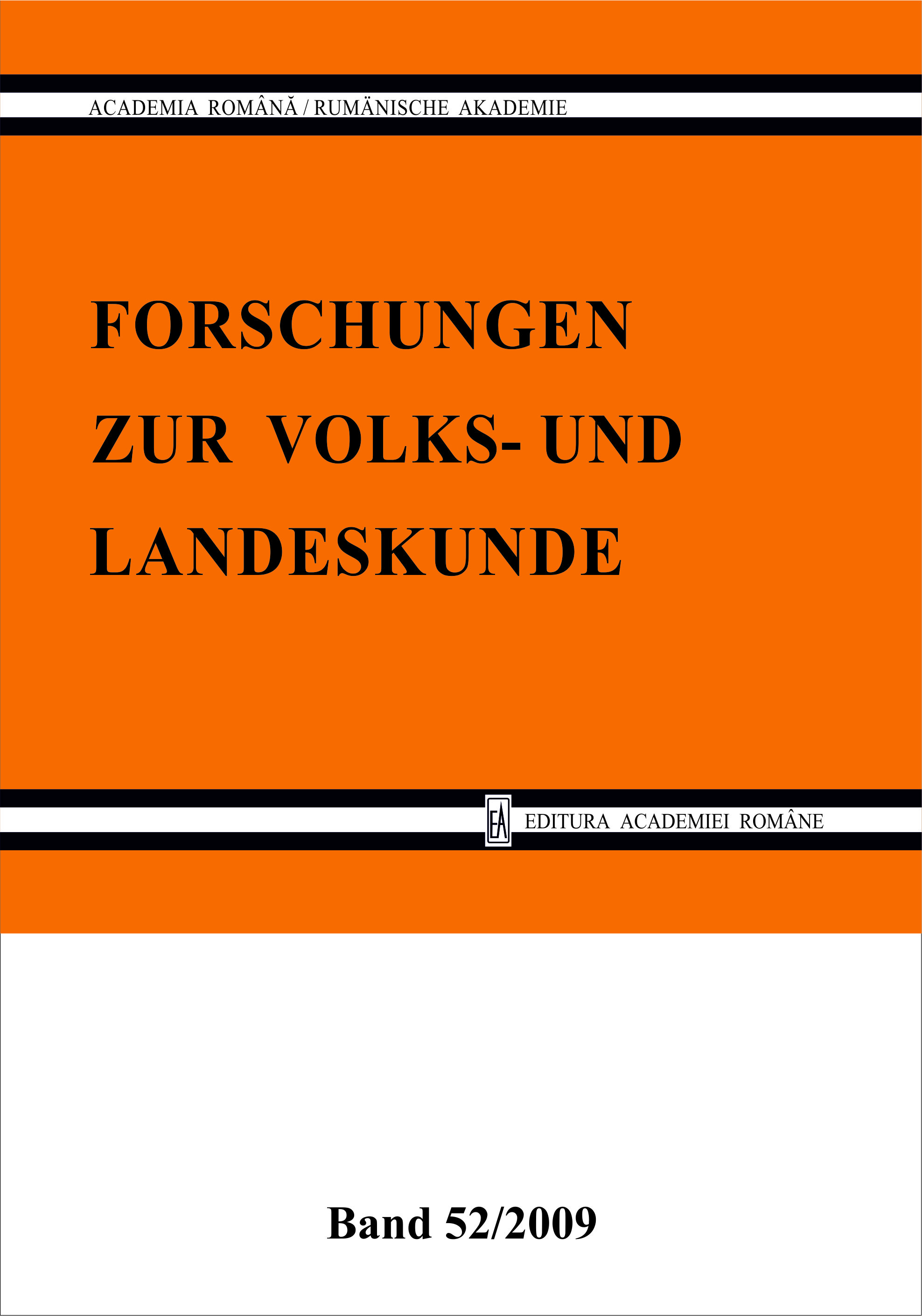Der Beitrag der Publizistik zum Modernisierungsdiskurs in Siebenbürgen um die Mitte des 19. Jahrhunderts
The Role of Journalism Outlining a Discourse about the Modernization in Transylvania in the Middle of the 19th Century
Author(s): Iosif Marin BalogSubject(s): Cultural history
Published by: Editura Academiei Române
Keywords: Journalism; discourse; economy; society; modernization; Transylvania; 19th century
Summary/Abstract: This study tackles the problem of outlining in Transylvania journalism from the second part of 19th century, of an economic discourse regarding the ways of modernization in the economy and society of that time. From numerous tackled problems we resumed only to the ones that detained the most important gravity in debates from that epoch: the industrialization problem, setting up a modern credit system and capital market, the ways for modernization of agriculture and the problem of adoption a set of modern economical conducts as a essential premise of the success of transformations. Being in the public debate even since anterior period, the problems and economical objectives had in view for a long term, modernization of economy and society , and the succession of political regimens on regional and central level, has not modify in main terms these debates. If the main elite was a fervent sustaining of autonomous exchange propagated in Transylvania by Adam Smith's writings, later, their ideas has oriented into the direction of economical protectionism, professed by its ideologist Friederich List. He has won supporters in Transylvania over to his side, at the middle of 70s, when economical crisis claimed a change in the economical politics and thinking in almost whole Europe. Expressed in the terms of attitude, the discourse about the economic modernization points to two main dimensions: a positive one and a negative one. The first one gives points to positive aspects, the other one shows the negative flanks of modernization and of processes brought by this modernization. We have to remark the fact that the negative flank of the discourse about the modernization is less present than the positive one. We can discern, at the level of the discourse of that epoch, a strong effervescence marked by different adaptations and gradation according to political visions,and especially by macro-economical which have directed and conditioned them.
Journal: Forschungen zur Volks- und Landeskunde
- Issue Year: 2009
- Issue No: 52
- Page Range: 95-110
- Page Count: 16
- Language: German
- Content File-PDF

